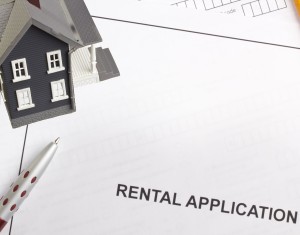
Life is certainly harder with a criminal record. As we’ve explained on the blog before, job hunting and applying for college with a criminal past can make getting hired or accepted into school difficult, as well as applying to rent properties. This is due to the fact that police checks are now available for businesses in most localities, such as the police check nsw which tells them if those who have applied for a job at their company or a property from their agency have a criminal record. But there’s no need to worry if you do have a record of minor misdemeanours, because there are things you can do to put yourself in a better light. The same goes for applying for an apartment or for housing with a criminal record. Here’s a look at some tips to keep in mind if you are looking for housing with a criminal record.
Housing and Criminal Records
Most landlords ask about criminal convictions on a leasing application and conduct a background check after you’ve applied, so there’s no getting around your criminal conviction. That said, here are some tips to keep in mind when applying.
1. Be Honest – When it comes to tenants, a landlord is able to check their record easily, so this is why honesty is the best policy. This is by far the most important tip. As we mentioned, the background check will reveal any past convictions, so lying on an application only to be caught during the background check is one of the quickest ways to have your application denied. If possible, write an explanation about the charge or conviction on the application or on a separate piece of paper. Explain that it was a stupid mistake from your past, and give examples as to how you’ve put that mistake behind you. If you lie about your criminal past and it comes out after you’ve been accepted, you may be evicted. You may also want to let them know if you have difficulty getting a job, it helps to tell your landlord, so you won’t get a late rent notice.
2. Talk With The Landlord – Even if you’ve changed and served your punishment imposed by the court, some landlords will deny you just because you checked “yes” in the box asking about criminal convictions. It’s a sad truth, but one you should be aware of, especially if there’s a fee to apply for housing. You don’t want to throw money away by applying for a unit that you have no chance of getting, so try and schedule a meeting with the property manager or landlord to explain your story. If they flat out tell you they don’t accept people with a felony conviction or drug convictions, and you have one of those on your record, look elsewhere for housing. When talking to the landlord, talk about your past, but focus on your current situation and how you are a different person than you were back then.
3. Conduct Your Own Background Check – If you’ve been cited or even arrested a few times, it may be a good idea to request a background check on yourself from your local courthouse or the Minnesota Bureau of Criminal Apprehension. That way you know what prospective landlords will see and you can address them when you meet/apply.
4. Have References – If a landlord asks for references, give them the contact information of a few friends or professional colleagues who can speak to your good nature. If possible, speak to your contacts ahead of time to let them know a landlord might be calling.
5. Be Prepared To Hear “No” – You’re going to hear the word “no” along the way, so try to temper expectations. Try not to fall in love with a place or location until you hear that you’ve been accepted. Being rejected from a housing complex can be a blessing in disguise, and while it can be frustrating to have your application denied, realize that you likely will be turned down at some places. Don’t take it personally, just keep your head up and keep looking.
The above points are just another reason why it’s important to consult with a lawyer, even over a minor drug possession charge. These seemingly insignificant crimes can really affect you down the road, so consider fighting the charge with the help of an attorney.





